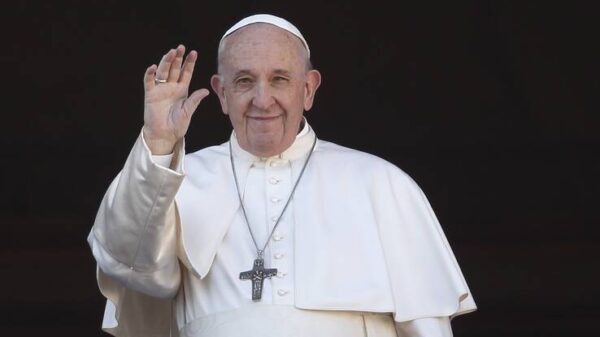U.S. Government Faces Challenges with Unspent Aid
The U.S. government is grappling with challenges surrounding the effective use of foreign aid, as recent cuts to the U.S. Agency for International Development (USAID) under the Trump administration have severely impacted the oversight of billions in unspent funds. According to a report from a government watchdog, approximately $8.2 billion in aid remains unspent, raising serious concerns about how these funds are being managed and whether they are being allocated to where they are most needed. The issue has become a focal point of criticism, particularly as global challenges like poverty, health crises, and climate change demand immediate action.
Cuts to USAID and the Impact on Aid Distribution
Under the Trump administration, significant cuts were made to USAID’s budget, which directly impacted its ability to oversee and distribute foreign aid effectively. These budget reductions have left a large portion of the allocated funds unspent, which has raised questions about the overall effectiveness of the U.S. foreign aid system. USAID, responsible for coordinating U.S. humanitarian and development assistance abroad, relies on sufficient funding to implement critical projects in areas such as health, education, and infrastructure. The reduced budget has hindered the agency’s capacity to fulfill these responsibilities, contributing to the growing backlog of unspent funds.
The Scale of Unspent Funds: $8.2 Billion at Stake
The report highlights that a staggering $8.2 billion in unspent foreign aid funds are currently sitting idle, unable to be effectively used for their intended purposes. This amount represents a significant portion of the overall U.S. foreign aid budget, and its stagnation poses a missed opportunity to address global challenges that require immediate intervention. The unspent aid includes funding for global health programs, disaster relief, and poverty alleviation efforts, areas where timely distribution is crucial to making a tangible impact. The situation underscores the inefficiencies that have emerged as a result of funding cuts and reduced oversight, which could have been used to improve living conditions and support sustainable development in vulnerable regions.
Concerns About Oversight and Accountability
The lack of oversight of unspent foreign aid is another key concern raised by critics of the Trump administration’s cuts to USAID. With a large portion of funds left unallocated, there is growing concern that these resources are not being directed to critical projects or regions in need. The government’s failure to properly oversee the spending and allocation of foreign aid funds risks undermining the U.S.’s credibility as a global leader in humanitarian and development assistance. Accountability mechanisms that were once in place to ensure that aid reached its intended recipients are now weakened, potentially leading to waste and inefficiency.
The Role of Congress and Accountability Measures
The situation has also brought attention to the role of Congress in ensuring the proper allocation of foreign aid. While the executive branch under the Trump administration has made significant cuts to USAID, Congress has continued to approve funding for foreign aid programs. However, without adequate oversight and a coordinated effort between Congress and USAID, much of this aid has gone unspent. Moving forward, it is crucial that Congress and government watchdogs work together to ensure that allocated funds are spent efficiently, with a focus on addressing pressing global issues such as public health crises, education, and climate change.
Global Implications: Delayed Aid Amid Crisis
The consequences of these unspent funds go beyond U.S. borders. As global issues such as the COVID-19 pandemic, humanitarian crises, and natural disasters continue to escalate, the inability to effectively utilize foreign aid is becoming increasingly problematic. Countries that depend on U.S. aid for health initiatives, disaster response, and infrastructure development are facing delays in assistance, which can exacerbate existing challenges. In some cases, this delay in aid distribution has resulted in prolonged suffering for vulnerable populations that rely on U.S. support for survival and recovery.
The Path Forward: Restoring Effective Aid Distribution
To address these challenges, it is critical for the U.S. government to restore effective foreign aid distribution mechanisms and ensure that funds are used efficiently to support global development. This may involve increasing USAID’s budget, reestablishing strong oversight protocols, and ensuring that aid is directed to projects that have measurable impacts. Additionally, fostering cooperation between government agencies, international organizations, and local stakeholders will be essential in rebuilding trust in U.S. foreign aid programs. Only through a concerted effort to improve transparency and accountability can the U.S. ensure that its foreign aid is making a meaningful difference in the lives of those who need it most.
Conclusion: Addressing the Unspent Aid Crisis
In conclusion, the $8.2 billion in unspent foreign aid represents a serious missed opportunity for addressing critical global challenges. The cuts to USAID under the Trump administration have left the agency struggling to provide oversight and efficiently allocate funds. As the world faces pressing crises, the U.S. government must take immediate action to restore effective aid distribution and improve oversight. Ensuring that foreign aid is spent efficiently and responsibly will be key to maintaining the U.S.’s position as a global leader in humanitarian and development assistance, while also making a tangible difference in the lives of those in need.




































